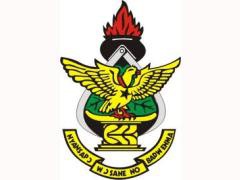The Kwame Nkrumah University of Science and Technology (KNUST) has developed a system to tackle the disturbingly high number of rejected ballots in Ghana’s elections.
The other high point of this unique ‘global system for mobile communication balloting system’ is that it has the capability to prevent multiple voting. The University’s 2015 Research Report, a copy of which was made available to the Ghana News Agency (GNA) said it was its contribution to the nation’s effort to remove the deficiencies to ensure efficient and fair election processes.
The system, it indicated, was pioneered by a team of researchers at the Department of Physics, led by Dr. Reuben Yao Tamakloe, a Senior Lecturer. The report described it as an automated, transparent and costeffective voting system that could replace the traditional ballot paper system.
It pointed out that the current wide availability of broadband internet, smart phones and tablets presented an opportunity to improve elections in the country
Under the system, which is meant to capitalize on the significant increase in mobile phone usage put at 116 per cent of the population, votes from the electorate would be received via text messages.
The report said it “has the capability of significantly reducing the occurrence of invalid votes and multiple voting as well as enabling the immediate display of election results”.
It added that another important feature of the system was that “only one vote is recorded even if a voter texts more than once”. The expectation is that the system would tremendously enhance the voting system and the credibility of the outcome of the country’s elections.
General News of Thursday, 26 January 2017
Source: GNA
KNUST leads effort to stop high rejected ballots
 File photo
File photo












